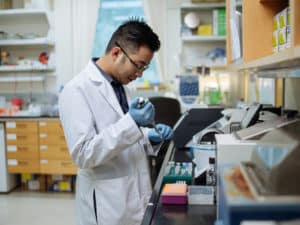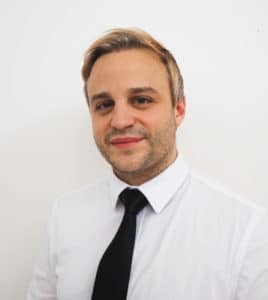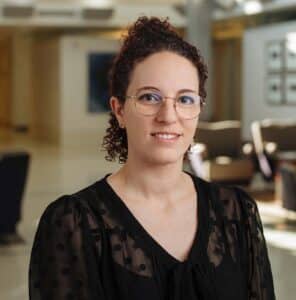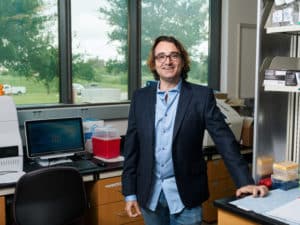SAN ANTONIO (January 14, 2021) – San Antonio philanthropists have awarded 13 grants totaling more than $675,000 for up-and-coming researchers and projects at Texas Biomedical Research Institute in 2022. These grants will support research about a wide range of infectious diseases and human health issues, including COVID-19, influenza, HIV, tuberculosis, aging and even brain-eating amoebas.
The grants are provided by the Cowles Family, the Douglass Foundation, and the Texas Biomedical Forum, a San Antonio women’s philanthropic organization dedicated to championing Texas Biomed. The awards are especially geared towards funding research by graduate students working on their PhDs, post-doctoral fellows who have recently earned their PhDs, and staff scientists early in their research careers. Texas Biomed faculty can also compete for 1-year pilot study grants, which are essential for collecting data needed to apply for funding from federal agencies like the National Institutes of Health.
“We are so grateful for the strong support from the San Antonio philanthropic community for Texas Biomed,” says Joanne Turner, PhD, Executive Vice President, Research at Texas Biomed. “The type of seed funding provided by the Texas Biomedical Forum is critical for advancing discoveries of new medicines, treatments, vaccines and diagnostic tests. And, the Cowles and Douglass Fellowships play a huge role in supporting the talented and diverse scientists launching their biomedical research careers here in San Antonio.”
Over the past 20 years, the Forum has awarded more than $3.5 million in Pilot Study Grants, which have enabled Texas Biomed researchers to apply for more than $75 million in outside funding, amounting to a 20-fold return on investment.
“We are so proud that our fundraising efforts enable us to provide 10 seed grants to Texas Biomed post-doctoral fellows, staff scientists and faculty this year,” says Amelita Mauzé, President of the Forum. “We are especially pleased to support such bright, up-and-coming researchers who are making significant contributions to human health right here in San Antonio.”
Award highlights:
PhD student making it easier to see COVID

“The Douglass Foundation Graduate Fellowship means a lot to me,” Chiem says. “It validates the merits and necessities of my project in studying SARS-CoV-2 pathogenesis and helping identify treatments against COVID-19.”
Doctor researching better influenza treatments

“The Cowles Postdoctoral Fellowship offers me the opportunity to expand my research approach to a new virus, gain experience with new research methods, and obtain pilot data to garner further funding to develop novel therapeutic approaches for other emerging pathogens with pandemic potential, so next time a virus hits, we have treatments ready to go,” Henry says.
Staff Scientist unraveling early drivers of tuberculosis

“TB kills one person every 21 seconds, and the number of deaths is predicted to increase 20% over the next five years due to COVID-19,” Allué Guardia says. “We need new therapeutic strategies and hope this work will help define novel targets for diagnostics and treatments.”
Specifically, she will explore how the alveolar lining fluid modifies the metabolism of Mycobacterium tuberculosis (M.tb), the bacteria that causes TB, during early infection stages. She also aims to pinpoint what fluid components and bacterial factors are associated with increased or decreased bacterial growth.
Microbiologist seeks to reverse the aging process

“Population aging is one of the leading issues worldwide, with the aged population seeing an increase in susceptibility to infectious and neoplastic diseases,” Torrelles says. “With the population over 65 set to double by 2050, it is imperative to find strategies to tackle cellular aging to improve the aged population’s well-being and reduce the increased economic burden that this societal change implies.”
The 2022 award recipients also include:
2022 Cowles Postdoctoral Fellowship, supported by the Cowles family:
Kathryn Vendreley will research how multiple genetic variations of a malaria parasite interact in a single infection.
2022 Forum Post-doctoral Fellow Awards, supported by the Texas Biomedical Forum:
Bindu Singh will research the role myeloid-derived suppressor cells (MDSCs) play in tuberculosis.
Antonio Solis Leal will research methamphetamine effects on HIV persistence in certain cell types.
Susanta Pahari will research how aging changes the function of alveolar air sacs in the lungs.
2022 Forum Staff Scientist Awards, supported by the Texas Biomedical Forum:
Eusondia Arnett will research the influence of zinc and zinc transporters on tuberculosis infection.
Rajesh Thippeshappa will research a nonhuman primate model of AIDS.
Shalini Gautam will optimize flow cytometry processes to support a wide range of research.
2022 Forum Faculty Awards, supported by the Texas Biomedical Forum:
Andrew Hayhurst will research how to improve detection, diagnosis and treatment of a deadly pathogen N. fowleri, commonly known as a brain-eating amoeba.
Elizabeth Clemmons will research a bronchitis bacterium that infects animals and improve diagnostics for current and prior infection.
###
ABOUT TEXAS BIOMED
Texas Biomed is one of the world’s leading independent biomedical research institutions dedicated to eradicating infection and advancing health worldwide through innovative biomedical research. Texas Biomed partners with researchers and institutions around the world to develop vaccines and therapeutics against viral pathogens causing AIDS, hepatitis, hemorrhagic fever, tuberculosis and parasitic diseases responsible for malaria and schistosomiasis disease. The Institute has programs in host-pathogen interactions, disease intervention and prevention, and population health to understand the links between infectious diseases and other diseases such as aging, cardiovascular disease, diabetes and obesity. For more information on Texas Biomed, go to www.TxBiomed.org.